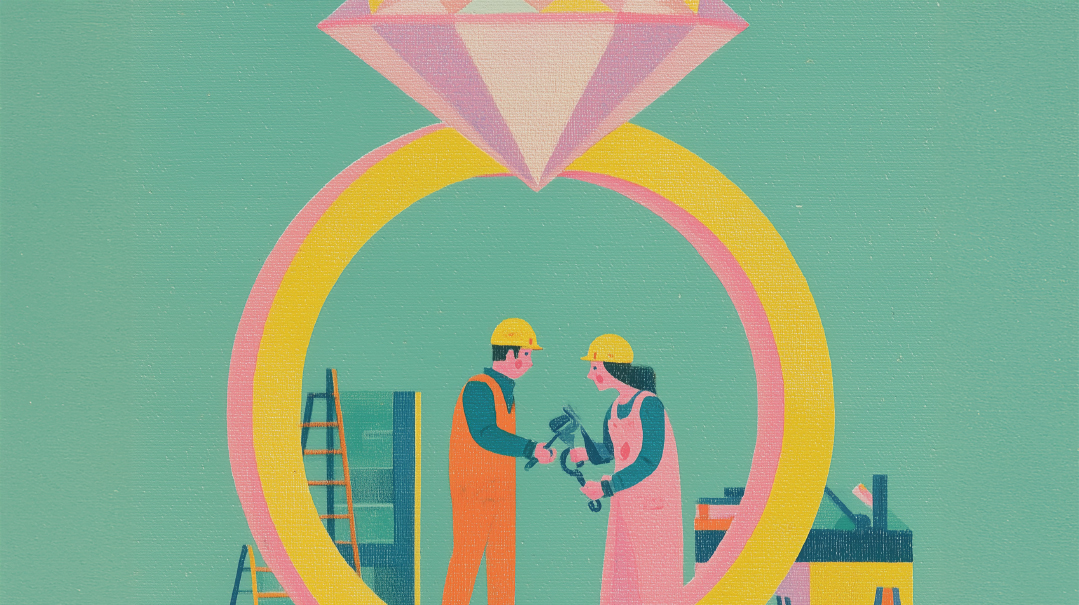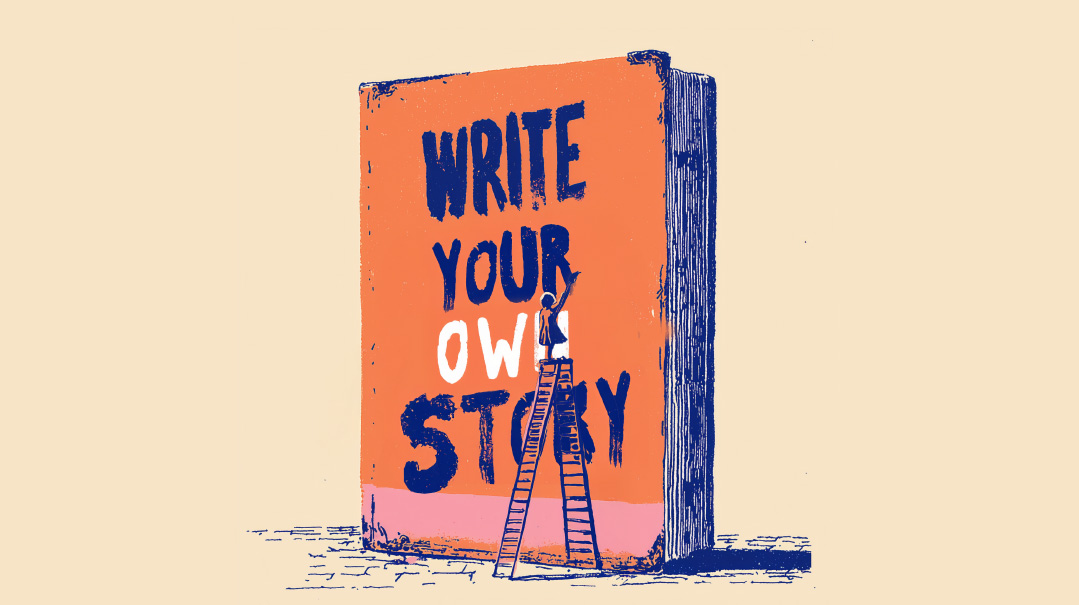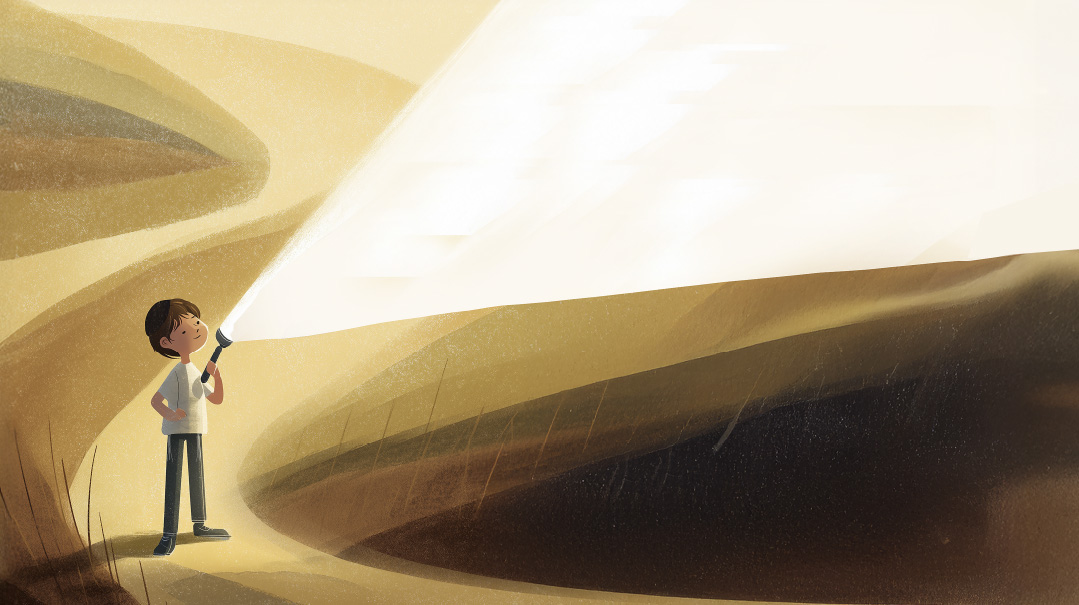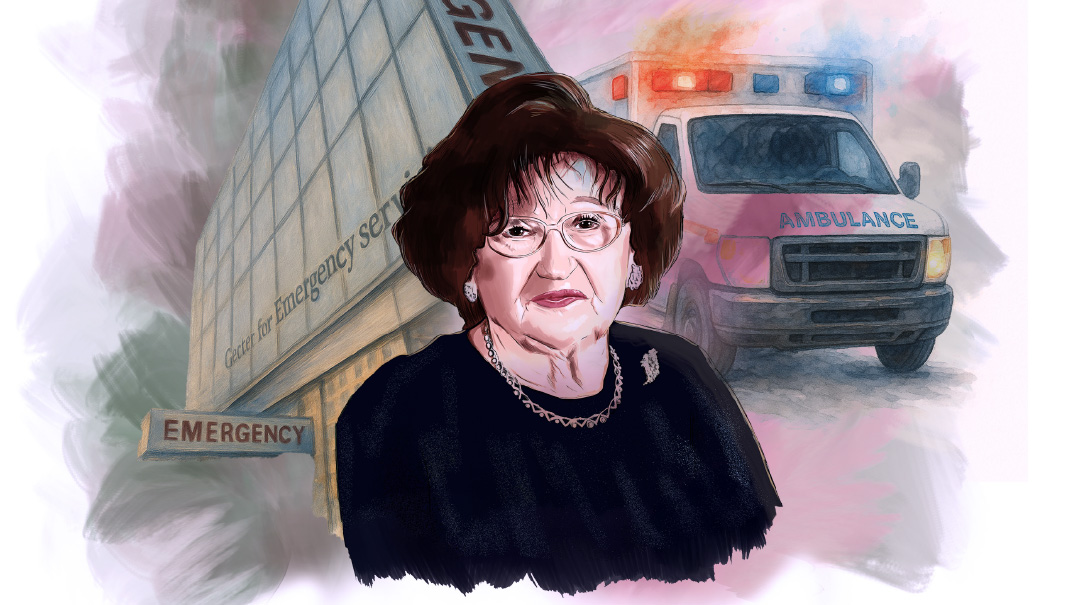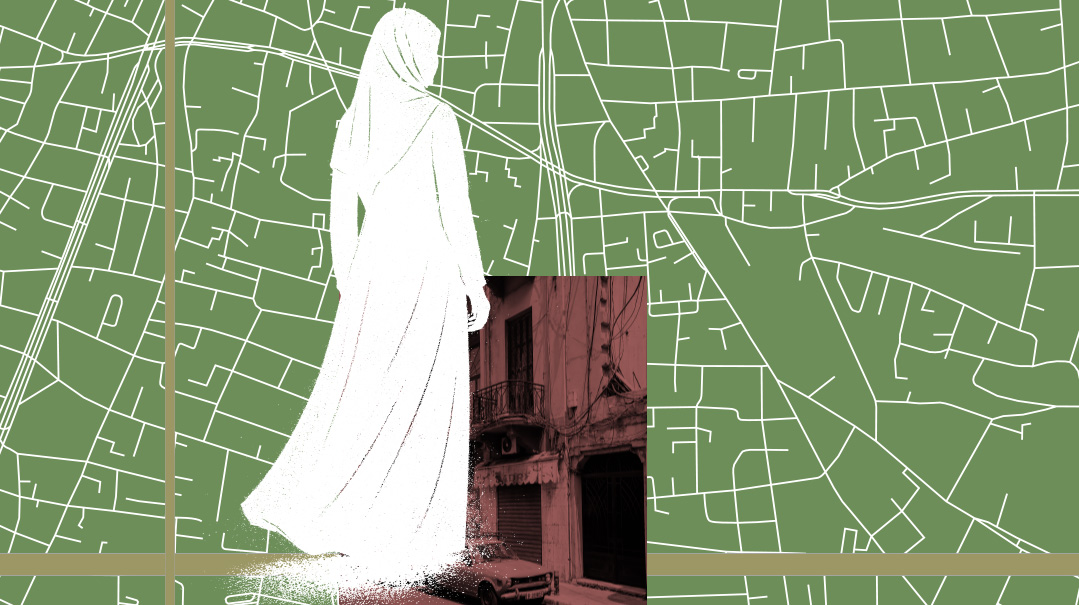Addicted to Change

Going through the 12 Steps is the most painful, most difficult, and most rewarding thing I’ve ever done. It’s not a magic fix, it’s a way of life.
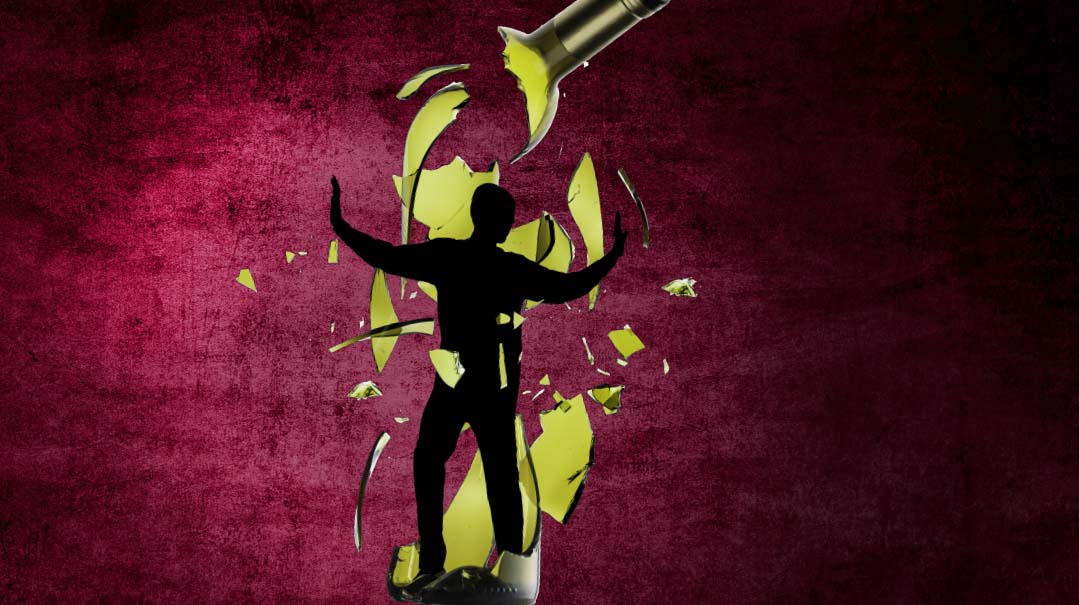
Addiction upends lives, derails homes, and destroys futures. but when an addict reaches out for help, and does the grueling work of breaking free, he can become a shining example of courage and growth. Two addicts and the spouse of one speak about their journey
Hadassah’s Story
I grew up in a big community, a middle child nestled between two older sisters and two younger brothers. I went to the same mainstream Bais Yaakov as my sisters, and my parents figured I’d thrive the same way they had: drama head, straight As, etc.
But that’s not how things panned out. I struggled in school, and my grades were weak. In retrospect, I think my lack of academic success impacted my self-esteem from an early age. There was a lot of physical and emotional abuse that happened as well, which added to my already low self-esteem.
By the end of high school, I was hanging out with the wrong crowd. They were the fun-loving type, and they accepted me with open arms. They also had all sorts of ways of making pain disappear. I started by joining them at clubs and parties, which quickly turned into drinking and getting high. Of course, it was all a big secret. At home I was shomer Shabbos, dressed appropriately and played the part, but I was living a double life.
When I was 20, I took a ski trip with a bunch of friends and had a bad fall. I was prescribed opioid pain killers. It didn’t take long for me to become addicted to the opioids. I wanted to stop, but I had no idea how to wean myself off them. I couldn’t keep food down. My addiction was taking over my life.
I’ve always been a person with a strong drive to give. I know I was put on this earth to help others and be that rock of support for people, but at this point I was unable to; I couldn’t even help myself.
My parents saw what was going on. Though they didn’t know the details, they knew I was in a bad place. It was terrifying for them. I wouldn’t come home for days, and they didn’t know how to reach me. My life revolved around figuring out how to get my next high.
In a moment of clarity, I approached my parents and asked for help. They quickly reached out to some activists in the community and got me into a treatment center. Before I left, my mother helped clean out my room and found a lot of the things I was using at the time. It was a frightening discovery for her.
I knew nothing about the process of recovery. I didn’t know about detox, or therapy, or any of the foundations I’d need in order to live a completely sober life.
I entered into a program, but didn’t feel it was right for me. I went back home.
And relapsed instantaneously.
At the previous treatment facility, I’d started doing the 12 Steps, but not intensely because I hadn’t taken the process seriously. I still didn’t fully recognize the hold my addiction had over me. I figured it was like when you have to miss school because of the flu. Once you get over it, you jump back in and pick up where you left off.
I tried to get a job. But nothing was really working out because I wasn’t following a program of recovery, which is the key to health.
I thought I’d be okay.
I wasn’t.
I started using and doing things that were even worse for me than before. I fell into a really bad depression.
At the darkest point, some incredible individuals helped me up from the depths. One community activist saw that as far gone as I was, I was also desperate to change. Thanks to him I was able to enter another treatment facility. I wanted to live a normal life. I wanted to know what drove me down this path, to know why my addiction had me in its claws so strongly.
I went to a facility that had a kosher option for food and more of a Jewish environment. It was a warm place where the staff truly cared. They helped me work through many of the underlying issues I was dealing with. I did a lot of therapy, a lot of trauma work, a lot of delving into my childhood.
I realized that my underlying issues were the reason I didn’t have the self-esteem to leave the friends who’d brought me down. I recognized that a lot of my issues came from a broken inner child who needed to be healed, repaired, and loved. I learned not to be ashamed or feel guilty for the abuse I went through. I learned about boundaries and healthy communication. I also learned about codependency and how not to rely on others for my needs.
It was an amazing 35-day program. When it finished, I went to another facility to continue my care. It was a PHP (part-time hospitalization) program. There I continued to strengthen my spiritual connection. I’m a very spiritual person, and even at the height of addiction when wasn’t keeping many mitzvos, my core stayed the same; I craved that connection. It was a huge bonus for me that we had a rav who came in to run Shabbos meals and talk to us. I stayed there for four months.
Making it Last
I came home for Pesach, but this time I asked the facility to help arrange three things. I asked them to get me the Vivitrol shot that can squelch opioid cravings; to get me into an outpatient program; and to help me find a safe place to live with women also in recovery.
I got back home, and I got that shot. It was extremely expensive, but it was a priority for me. I started an outpatient program, which was great. But I had no place to live; there were no options for me in my hometown, so I had to live at home. That was really hard, as it was a trigger for me to slip into my old behaviors, but I pushed through. I was really committed to the outpatient program, and I had a therapist.
I started college and found a job in the afternoons. I was studying to become a therapist for kids on the spectrum, and I had a full schedule. That worked for a while, and I was getting back to myself. The problem was I was still home, and I had friends from my past who weren’t the best for me, but I couldn’t seem to cut them out completely, so I had to juggle that.
Then something happened that shook me to my core. I had a close friend who really wanted to get help with her own addiction, so I did everything I could to help her. She went to a facility to detox, but right afterward, she went home, overdosed, fell into a coma, and passed away a month later. Her death struck a chord in me like nothing else had. I’d gone through everything with her. She had dreams, she was in school studying to be a mental health counselor. She was a huge part of my life and the fact that her own life was suddenly cut short pushed me into a very dark place. It didn’t help that my therapist wasn’t working out.
I reached out to Amudim, who quickly set me up with a new therapist. But then came another blow: Covid. I’m sure so many people struggling with addiction can relate to the immense impact that had on me. Suddenly, therapy was over Zoom; I was stuck at home; gone was my rigorous schedule of work and school. My two younger siblings were home. It got really intense really fast. I fell into a depression. I felt I was going to lose everything I’d worked so hard to gain.
Then, suddenly, a different option materialized that was much better for me. People helped me find a place down south that had a sober-living facility that was perfect for me. That was a turning point. I so clearly saw the Hand of Hashem. I also saw that my resolve and all my hard work was finally doing something.
The facility was in a nice frum community, and I found work close by. I also connected to a family who invited me for Shabbosim and allowed me to become part of their family. I worked hard; even on Shabbos I ran a program for kids. I spoke at a treatment center, telling my story. I was starting to see a future. I could see myself settling down, getting married, having my own family and Shabbos table. The sun was shining again.
The 12 Steps in my Life
A huge part of the process that got me to this point was finding a sponsor and following the 12 Steps. The 12 Steps include bringing a higher power into your life. Obviously, for me that meant bringing Hashem into the picture. When I worked through recognizing my own powerlessness, the burden of controlling the situation no longer rested solely on my own shoulders. I felt I wasn’t doing it all alone.
One of the most life-changing steps for me personally was the fourth step, which includes writing down my resentments. Holding onto resentment can lead to a relapse, so letting go of the past in a structured way is crucial to the process of recovery. The fifth step includes reading what you’ve written to your sponsor. That two-pronged approach of introspection and sharing is very powerful. It makes you go through your character defects and deep into yourself. I learned to stop blaming everyone else around me and to accept my own flaws.
Once I said okay, this is me, flaws and all, I was able to work on myself in a much more substantial way. It also enabled me to reach out to Hashem and ask Him for help.
When you bring Torah and Hashem into the 12-Step program, it’s even more powerful. You can take the middos you’re struggling with and look up the way the Torah and mussar seforim describe how to deal with those middos. There’s endless guidance to be found.
In my opinion, the most beautiful part of the 12 Steps is the last one: to give over what you’ve learned to someone else who’s struggling with addiction. It requires getting out of your own head and looking beyond yourself, the essence of the middah of chesed.
Not every AA or NA meeting is going to be wonderful. But overall, the support you get helps so much. The people you meet at these meetings often become role models. I’d meet people and say, Wow, I love that you’ve made these changes in your life, how can I make that sort of life for myself?
I had to work so hard to get where I am today, but now I have something no one can take away. When you go through the process of recovery, you learn new, healthier coping skills when dealing with something stressful, instead of turning to drugs or alcohol. You learn that there’s a way out. I’m a better and bigger person. It’s incredible to be able to say to other women: I’ve been there, and I see a brighter future for you, it’s possible.
L’illui Nishmas Malka Bas Shlomo Dov
Dovi’s Story
My first drink was at a bar in Manhattan at age 17. I was depressed and at odds with a lot of people after my volatile high school years, and that first drink accelerated the downhill trajectory of my life.
One drink turned into two. In the years that followed, the drinking, as well as drug use, increased, but I wasn’t cognizant of the fact it was a real problem. I had a career, I got up every morning. Sure, there were issues, life wasn’t perfect — but I was functioning.
A close friend and my doctor were the ones who pointed out that my drinking and drug use was out of control, and it was time to get help. I did the responsible thing and enrolled in a six-month rehab program.
I left after a month, determined to prove that I didn’t have a problem, I was fine.
When I returned from rehab, I discovered that the ideas that had been planted in my head during my short stay kept popping up, so I went to some AA meetings. I tried to stop drinking and decided to work a 12-Step program. But once I started, I found the rigorous honesty necessary to work the program too much to handle, so I dropped it.
Inevitably, I picked up a drink again.
I was about 28 at the time, and my life got very miserable very quickly. I was fighting with everyone around me, and I was extremely unhappy. The turning point came unexpectedly, when a friend who had already been sober for some time laid it out for me by explaining the underlying root of my misery. “You’re an alcoholic with no solution. You took away your drinking, you took away your step work, you took away everything, but you’re not trying to fix anything.”
I thought about that and decided there was truth there. I made the decision to give a 12-Step program another shot. I went with a couple of friends to a meeting, and I made a commitment to take it seriously.
I haven’t touched a drink or used drugs since that night 11 years ago.
Going through the 12 Steps is the most painful, most difficult, and most rewarding thing I’ve ever done. It’s not a magic fix, it’s a way of life. I still attend meetings that provide a lot of support. Sometimes, like when Covid hit, meetings weren’t enough and I reached out to a therapist for extra support.
One of the beautiful things recovery taught me is how to be open to listening to other people. The same way I learned to trust my sponsor (because he’s been there, done that), I learned how to take my therapists’ advice and implement it. That’s not something I was able to do before recovery.
The 12 Steps are a spiritual program. It requires a one-on-one relationship with a higher power. For those coming from any sort of religious background, Jews and non-Jews alike, the higher power aspect can prove tricky in the beginning. The road to rehab and AA isn’t strewn with rose petals and laughter; life has been rough for many of us and there’s often a lot of anger toward Hashem at the beginning of recovery. Just like the many kids who grew up frum I’ve sponsored over the years, I wasn’t ready to connect with Hashem when I entered AA.
I’d walk into meetings and see people that I knew from before — people I used to drink or use with who’d been some of the most miserable people I’d ever known, yet when I listened to them speak, I saw they’d found true happiness and peace. I realized there had to be something that could fix this. I was willing to concede that there was a Creator that could make people happy, a Higher Power was helping all these people working the 12 Steps and finding happiness, but I was still very angry at the G-d of my youth. I started believing that there was a G-d of AA. It worked in the beginning, but at a certain point I hit a block. I could no longer believe there were multiple gods — if He was the G-d of AA then He was the G-d of everything.
But I was still struggling with the thought of building a connection. One of my buddies at the time handed me the key. He was a frum guy, long beard, long jacket, and he was also in recovery. I asked him about my hesitancy to connect to Hashem. He said to me, “No problem. You can borrow my G-d. If you believe that I have a G-d that made me happy, well, I was raised the same way you were. Every morning when you wake up, pray to my G-d.”
People outside recovery laugh at that story, but the number of Orthodox Jews I’ve sponsored and taken through the 12 Steps who’ve started off using that very process is staggering. One of the best things about people in recovery is how open we are with each other, so I share this idea often when people are struggling. I tell them, “Find another frum Jew, someone living a healthy, happy life in recovery and pray to his G-d.”
The 12th Step is to carry this message to another alcoholic and practice these principles in all of our affairs. That doesn’t necessarily mean sponsoring, sometimes it’s as simple as hearing someone speak up in a meeting and walking over afterward, shaking their hand, and saying, “Listen, I’ve been there, done that, this is how I got through it.” The idea is to share your experience, strength, and hope. Looking at other’s who’ve gone through the same thing, seeing how far they’ve come and how happy they are gives over the hope and strength to the individual that they can get there too.
What I Gained
The 12 Steps turned around my miserable life and gave me a life I could never have imagined. I have a loving wife, beautiful children, and a relationship with my parents and siblings, which is something that was really strained before. Altogether, I’m a better person.
The only element that changed in my life was my attitude and approach to life. Instead of it being everyone else’s fault, I learned how to take responsibility for my own actions, and how to fix mistakes. It’s not just about fixing the past, it’s going forward knowing that I’m a human who makes mistakes, and that I have the tools to fix them. I gained the ability to do that through the 12 Steps.
Years ago, I called up my sponsor when I was at my parents’ house with my wife, and my brother was getting under my skin to the point where I was livid. My sponsor said to me, “Be honest, what about him bothers you so much?”
And I answered, “He’s just the way I was, and he doesn’t listen to reason.” My sponsor chuckled and said, “Then treat him the way you would any other addict.”
It clicked. I took my brother out for pizza the next day, sat him down, and told him my story. And of course, he laughed at me and told me he wasn’t an addict and to leave him alone, the works. Then he went back to yeshivah.
A year later he called me up and asked me if I would join him at a meeting to give him a 90-day sober coin.
Now he has six years under his belt. He has a life, a family.
It’s very easy for people to point fingers and say you’ve got this problem or that problem, you’re an alcoholic. It’s a totally different story when someone comes over and says without judgement and finger pointing, “I’m an alcoholic, I’ve been in your shoes, this is what I went through, this is how I fixed it.”
There is a famous painting of the very first AA meeting back in the 1930s. It depicts one man in a hospital bed and two men sitting on chairs next to his bed, talking to him. That’s the whole story right there. Two men had managed to enter recovery, and to ensure their own continued success, they found a third person to give over what they’d gained, helping both him and themselves in the process. That was the birth of AA.
This painting hangs in many 12-Step based places and the lesson to be learned is so powerful: the only way to keep it is to give it away. That’s the way to stay sober. I keep giving everything that I got in recovery, passing it on, and hopefully spreading hope and strength everywhere I go.
Twelve Steps to Health
By Devora Shabtai LCSW, Program Manager at Transformations Treatment Center, and Menachem Poznanski LCSW, Director of The Living Room
Addiction is universal, and touches Jews of every affiliation. Sadly, there have been a devastating number of overdoses in the Jewish community. Despite the growing awareness of addiction in the frum community, those who struggle with or are in recovery from this disease often feel branded with a stamp of shame.
The fear of damage to family reputations causes many to hesitate before getting the help they so desperately need. This stigma directly contributes to the ongoing addiction crisis.
It’s critical that as a community we create a culture where we relate to those battling addiction with compassion and empathy, and those in recovery, with respect and admiration.
It begins by understanding that people don’t willingly choose to become addicts. Many are seeking relief from profound pain and trauma, emotional and social discomfort, and struggles with identity and self-esteem, among others.
We also need to realize that those working to overcome addiction are displaying heroic strength and courage. Sit in a therapy group in rehab or a 12-Step meeting, and you’ll find people living with purpose and meaning. You’ll see people on a mission to use their painful histories to help others, people on a path of personal development and spiritual connection.
Recovery is an intensive battle to reclaim one’s life. Those struggling need many in their corner along the way, including a community of support and encouragement.
We each have the power to help destigmatize this crisis by watching how we speak when talking about individuals and families suffering from addiction. It would also be of great help for community leaders to become better educated on the causes of addiction, speak openly about recovery in the public sphere, and promote resources for those struggling.
Some shuls have taken the lead by developing programs to expand awareness of the crisis, and even begun to host ongoing addiction support groups and recovery-oriented classes. Jewish recovery fellowships and support organizations have also expanded throughout the country.
There is lots more to do — let’s make it happen.
The 12-Step Program
For many, a sustained recovery only becomes possible when they continuously “work” at a program of recovery. Addiction has physiological, emotional, and spiritual roots, and all need to be addressed.
The 12-Step program of Alcoholics Anonymous, Narcotics Anonymous, and Al-anon (for family members of addicts) is one such powerful, proven tool that has saved millions of people. Attending peer-led recovery meetings and working the 12 steps with a sponsor — alongside professional intervention — are vital components of long-term healing.
Without an understanding of the program and its purpose, many have carried misconceptions regarding its compatibility with Yiddishkeit. AA isn’t aligned with any particular denomination or religion. It’s a G-d centered therapeutic intervention for a disease.
Here are the steps:
Step 1: We admitted we were powerless over alcohol [or drugs] — that our lives had become unmanageable.
Step 2: We came to believe that a Power greater than ourselves could restore us to sanity.
Step 3: We made a decision to turn our will and our lives over to the care of G-d as we understood Him.
Step 4: We made a searching and fearless moral inventory of ourselves.
Step 5: We admitted to G-d, to ourselves, and to another human being the exact nature of our wrongdoings.
Step 6: We were entirely ready to have G-d remove all these defects of character.
Step 7: We humbly asked Him to remove our shortcomings.
Step 8: We made a list of all persons we had harmed, and became willing to make amends to them all.
Step 9: We make direct amends to such people whenever possible, except when to do so would injure them or others.
Step 10: We continued to take personal inventory and when we were wrong, promptly admitted it.
Step 11: We sought, through prayer and meditation, to improve our conscious contact with G-d as we understood Him, praying only for knowledge of His will for us and the power to carry that out.
Step 12: Having had a spiritual awakening as the result of these steps, we tried to carry this message to other addicts and alcoholics, and to practice these principles in all our affairs.
In Steps 1–3, a person becomes honest about the problem and hopeful that a solution is possible through faith. In Steps 4–9, s/he musters the courage to fully examine his/her life and becomes willing to change. In Steps 10–12, they develop ongoing habits toward building meaningful and lasting relationships with G-d, oneself, and others.
Many we may know battling addiction are still in the middle of their stories. Some may not yet be ready to get help, and others may have taken two steps forward and one step back. Yet, as the narratives in this article show, with the right resources and support, there is real hope. The more we open up our hearts to people and their families who struggle with addiction, the sooner these beautiful souls can find the support and acceptance they so deeply deserve and need to be successful along this journey.
Help is Here
Looking for help with addiction — your own or that of a family member? Here are resources and books that can help you along the journey.
Resources
Amudim- Amudim.org
Relief Resources- Reliefhelp.org
The Living Room- ourplaceny.org
MASK- Mothers and Fathers Aligned Saving Kids (MASK)- maskparents.org
Communities Confronting Substance Use and Addiction (CCSA)- jewishccsa.org
Suggested Reading
Addicted Thinking: Understanding Self-Deception by Rabbi Dr. Abraham Twerski
G-d of Our Understanding by Rabbi Shais Taub
Stepping Out of the Abyss: A Jewish Guide to the 12 Steps by Menachem Poznanski and Aryeh Buchsbayew
Meira’s Story
by Meira Rubin
My first date with my husband went surprisingly well. We both felt instantly at ease and even a sense of connection with one another.
Sometime after the first hour, he looked down and asked me what I knew about him. “I was told you’re a good guy, a real mevakeish, with a dark sense of humor, and that you’ve gone through hard things.”
It was the truth.
“Okay, yeah, so I’ve also been sober for six years.”
I was totally thrown off. This wasn’t first-date talk. Despite feeling so comfortable with him, I didn’t want to discuss something like that on a first date and said, “Okay. I hear you. That’s a discussion for another time, but tell me, how dark exactly is your sense of humor?”
He looked relieved and surprised, and smiled, understanding that no, I wasn’t going to end the date because he was in recovery, but it would definitely be something I’d have to come to terms with. We carried on our conversation.
Truth be told, I was more concerned that he decided to share this information with me on a first date than the information itself. As I later found out, he’d told me this early on in the dating process because he didn’t want to be rejected after becoming emotionally invested.
I didn’t know much about addiction and recovery, but I also recognized that sitting across from me was a thought-out person I felt connected to and respected.
I decided to educate myself about what it all meant.
On our second date, I brought it up myself. I remember asking him what it meant to be sober for six years. Did it mean he never drinks? Did it mean he hasn’t touched alcohol at all in six years? (It does). Can he be around alcohol? (He can).
He answered my questions honestly and openly.
Everyone has some kind of nisayon, something they struggle with, even multiple things, and I was fine with the fact that this was his. But I’ve always been a person who likes to be prepared. While dating, I read the Big Book of Alcoholics Anonymous and consulted with trusted rabbanim and mentors, who while they did give me valuable information and perspective, also directed me to speak with those intimately knowledgeable.
I attended an “open” 12-Step meeting (meaning open to those who aren’t in recovery or struggling with addiction themselves). I was shocked and comforted when I recognized multiple members of my community there who spoke about their struggle with addiction and recovery. These were productive, involved, and respected members of my community, functional and loving husbands and wives, mothers, and fathers.
Of course, there were one or two people in my life whose eyes got quite wide when I told them my chassan-to-be is in recovery for alcoholism. Probably from a combined goodness of their heart and lack of exposure and knowledge, they warned me that it was in my best interests to just end it.
But I was looking to marry someone thought-out, who’d worked on himself — and here he was. More importantly, I had the blessing of my close family members and trusted mentors and rabbanim.
I made a point to speak with a number of women who were married to men in recovery to give myself an idea of what their life looked like. Each one gave me their own perspective, and now, after a considerable time married, I have my own.
At first, I didn’t think of my husband as an addict; I thought of him as someone in recovery. The truth is, he’s both. No, he never touches alcohol or any drug. Not on Purim, not during sheva brachos, not ever. We used grape juice under the chuppah.
He regularly attends 12-Step meetings, has a sponsor, and also sponsors others, and lives his life guided by the 12 Steps
During our shanah rishonah, both his sponsor and rav recommended that since shanah rishonah involves so many adjustments, he should increase the number of AA meetings he attends a week, and so he did. It became a natural thing in our home. Just like he goes to Maariv, he goes to meetings.
About two years into our marriage, I was able to pinpoint personality traits associated with falling into addiction. My husband is an all-or-nothing type. He either eats healthy and exercises every single day, no exceptions, or he doesn’t do it all. Once he breaks his diet, he totally falls off the wagon, and it takes time and a lot of encouragement for him to start eating healthy again.
The same is true for his learning and general productivity. Bein hazmanim is the hardest time of the year for him. He feels anxious and stressed without his routine. Having too much time on his hands and not being immersed in helping others brings him down. Moderation, I’ve learned, doesn’t come easy to him, if at all.
Introspection does. One of the 12 Steps is to take a moral inventory of one’s self. This allows a person to identify their problems and get a clear picture of how their behavior affects them and the others around them. By the time my husband and I were dating, he’d been doing this for many years.
When my husband and I have a disagreement, I’d love to say I’m the one who first says: Hey, what did I do or say wrong here? But I’m not. After arguing for a few minutes, I usually see him sitting there quietly, and I know he’s thinking how he can “keep his side of the street clean,” a common phrase used in recovery to mean we should focus on our own wrongdoings instead of others’. He usually then apologizes or expresses an understanding of where I’m coming from, dissipating the argument pretty quickly.
In general, I give the 12-Step program a lot of credit for our shalom bayis.
My husband is more easily frustrated than most and is a highly sensitive person. While one doesn’t equal another, I do believe this is also related to his addiction.
For my husband, being around alcohol isn’t a trigger. We have wine at our Shabbos table, and when we aren’t hosting a sober Purim seudah for those who want to be at one, he has no problem being in the typical Purim environment.
I feel bad for women whose husbands drink on Shabbos morning at kiddushim, and at Friday night meals, and spend Purim and Motzaei Purim worried sick about their husband’s drinking or frustrated they’re the only capable parent present.
Purim is the time of year I usually get questions about why my husband isn’t drinking. I just smile and say that he doesn’t drink. Sometimes women are curious, but the usual reaction is: You’re so lucky.
There have been a few times that my husband has been prescribed narcotic pain killers. That did make me nervous. He had a plan to follow there, as well. Just as we consult daas Torah before making moves in our personal lives, my husband’s sponsor is our “rav and posek” when it comes to what drugs and alcohol regulations we have in our home. His sponsor has always said that he shouldn’t have access to the medicine, and I’ll dispense it to him.
While battling a serious case of COVID-19, he was prescribed very strong and addictive painkillers. The doctors explained that it was necessary for his body to relax from the pain so that his lungs could heal. After consulting with his sponsor and a therapist knowledgeable about drugs and alcohol, it was clear that due to his excruciating pain and the condition of his lungs, he needed it. Giving him that medicine was probably one of the scariest things I’ve had to do.
Two days later, after a miraculous improvement, I can’t describe the relief I felt when my husband declared his pain improved and insisted I flush the painkillers down the toilet.
Sometimes I feel guilty about being married to a man in recovery because I feel like I didn’t “earn it.” Most, if not all, the stories I’ve read about women married to men who suffer from addiction involve a story of pain as they watch their husbands engage in dangerous and destructive behaviors.
My husband had accumulated quality and quantitative time sober before we met, and baruch Hashem has remained sober. I just swooped in for the good part, and good parts there are many.
Being married to someone in recovery taught us to work on ourselves to be healthy, caring, and growing Jews.
Based on my experience, the real concern doesn’t lie in marrying someone who’s made a solid recovery, rather it lies with someone who currently misuses drugs and alcohol. I don’t live my life in fear every time my husband goes out, or comes back late from a kiddush or shalom zachar. It doesn’t cross my mind that he’s out drinking.
I encourage anyone dating or in a relationship with an alcoholic to reach out to an AA chapter near them to get a better understanding of and guidance on how to help their spouse. I entered our marriage aware and a tad nervous about the challenges my husband faces and what it could potentially mean for me. I just wish I would have known about all of the personal growth, mutual respect, positivity, and brachah it would involve as well.
(Originally featured in Family First, Issue 768)
Oops! We could not locate your form.
